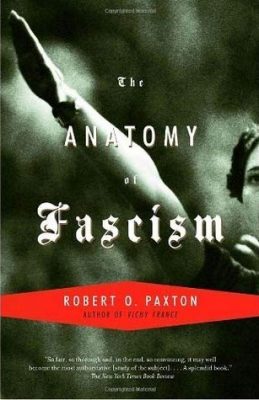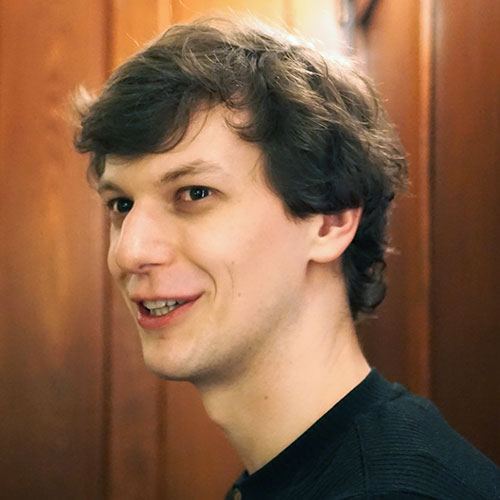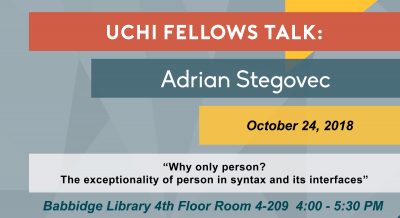Author: Morariu, Megan
The William Benton Museum of Art featured in the Boston Globe
Boston Globe Article: Get stamped: explore the Connecticut Art Trail
You SHOULD…See: Moonlight
“So intimate is moonlight reflected on still water that this spare, deeply moving film appropriately bears the name. Moonlight won a Golden Globe for Best Picture, an Oscar for Best Supporting Actor, and was the second lowest-grossing film in history to win an Oscar for Best Picture, its all-black, mostly unknown cast beating out favored La La Land starring Ryan Gosling and Emma Stone. So why is this particular coming-of-age story so worth seeing? In a word: hope. Told in three parts, the film portrays black lives that are at once complex, flawed, loving, and healthy [finally!]. Moonlight follows from boy to man the life of black and gay Chiron. Front-and-center in the film are hyper masculinity, economic depression, and drugs, yet these situational factors are not depicted as the inherent dysfunction of blackness. Unexpectedly, we admire and care about the 40-something drug dealer whose performative masculinity slips easily from his shoulders to tenderly parent semi-orphaned Chiron. We are both crushed and empathetic when Kevin, Chiron’s childhood playmate, as a teenager and to avoid his own beating by schoolyard bullies repeatedly knocks down and draws blood from his shy unsinkable friend, Chiron. And we feel Chiron’s interiority, the ebb and flow of his self-possession, his tenuous yet durable embrace of himself. As Chiron sorts through his gay black worth, stretching toward fulfillment despite domestic abuse and betrayal, we the viewers also internalize the power of honest connection and self-acceptance. For Moonlight, both black aggression (pariah) and self-erasure (hapless victim) indeed are myths. Chiron returns again and again to his gayness, blackness, and vulnerabilities, choosing to love rather than deny himself. As we watch, the desire to engage the best of our own lives and communities is overwhelming. Moonlight is a must see.”
–Melina Pappademos,
Associate Professor, Department of History
and Director, Africana Studies Institute
Harry van der Hulst on Tent Talks Podcast
You SHOULD…Hear: Songs in the Key of Life
“You should hear Songs in the Key of Life, by Stevie Wonder. In 1975, Wonder had considered leaving the music industry, moving to Ghana and working with children with disabilities. At only 25 years old, he had already released 17 albums, sold millions, and won dozens of awards, including Grammys for Album of the Year (1974 and 1975). After some prodding from friends, family, fans (and the biggest record contract for any artist in history), he returned to the studio to record. In the midst of the dominance of the carefree hedonism of disco, the double LP, was released in September 1976 to critical acclaim. Like his previous work, this LP proved to be a beautifully discursive exploration of the human condition. Wonder assembled a group of artists from different genres and filled the album with an aural style and literary brilliance that was organically balanced with social commentary and festive jaunts about mistakes of our youth. “Isn’t She Lovely” is as infectious and fun as songs get. “Sir Duke” is classic Wonder. With more hit singles than any Wonder LP ever, it’s a challenge to justify focus on one song, but Wonder’s highpoint is one of the best love songs ever, “As.”
Songs became Wonder’s best-selling album of all time. It won Grammy Album of the Year among three other Grammys. Auteurs from Prince to George Michael have praised it as the best album ever made. The list of awards and honors is too long to put here. When you hear it, know that it offers us many ways for its consumption. Focus on the sonic, and isolate the various instruments and vocals from Herbie Hancock or Minnie Riperton. Concentrate on the enthusiastic flow of Wonder on some songs, the playful laugh, improvisation, or prattle on another. Appreciate the jazz inflections on R&B vocals. Listen to tales of love, God, struggle and joy. It is a lush, incredible example of exceptional talent and a reminder of how important it is to encourage the creation of wonderous art. ”
– Jeffrey O.G. Ogbar
Director of the Center for the Study of Popular Music
Professor of History
You SHOULD…Read and Listen: Teaching Community
“You should have a reading and listening jam session, engaging bell hooks’ Paulo Freirean-inspired critiques of structures and systems of power in Teaching Community: A Pedagogy of Hope (2003) while absorbing the liberatory sounds of the Wynton Marsalis Quintet’s “Free to Be” (2004). In ensemble, these two works offer at once intensely personal and collaborative learning frameworks for creative action. In Teaching Community hooks interrogates how our gendered, sexualized and racialized bodies intersect and operate in the context of historically segregated educational institutions. Yet, she insists that when working in solidarity with and in diverse communities beyond the university, “democratic educators” can foster a pedagogy of hope. Similarly, as a cultural form born from resistance to oppression and as an expression of freedom, jazz music –as exquisitely interpreted by Marsalis in “Free to Be”– functions through three interconnected elements. It grounds us in the historical pain and blues of inequality and discrimination; it celebrates individual creativity and strength in improvisation; and it promises that, if we intentionally and empathetically listen to and collaborate with each other, the music and experience will swing!”
–Mark Overmyer-Velázquez,
Professor of History and Latino & Latin American Studies
University of Connecticut – Hartford
You SHOULD…Read: The Anatomy of Fascism

“To help navigate these incredibly dark times and put them into historical perspective, you should definitely read Robert Paxton’s The Anatomy of Fascism. I meet people all the time who want to learn more about fascism, but don’t know where to begin. The pile of books that have been published on the subject could form its own mountain, and the sheer range of options can be overwhelming. I’ve had to take a big bite out of this mountain for my own research, and I can say that if you have time to read just one book on the subject, it should be this one.
I like it because of its accessibility and avoidance of jargon, its broad scope, and because it is attuned to the contemporary relevance of his subject. As such, he’s not afraid to say that fascism lives on in present day. Published in 2004, Anatomy of Fascism was not conceived with the current crisis in mind, which makes it less topical and more powerful in my view. But I like it most of all because it’s argument is solid. Paxton doesn’t pull any cheap shots to make his subject topical. Instead, like a good historian, he honors the specificity of pre-WWII European politics and culture, and lets his readers draw their own conclusions.
Paxton, now retired from Columbia University, argues that fascist movements can’t be defined by their political platforms – these change as values change, and fascist states shifted their policies quite often anyway. A steadier indicator of a fascist movement is its “mobilizing passions” – that is, the emotional triggers and underlying desires that fire up its political base (you’ll have to read the book to find out what these triggers are). Further, he argues that fascist movements rely on the enablement of traditional conservatives: if an aging conservative establishment had not given Hitler and Mussolini the keys to the kingdom, their movements would have likely died on the vine. With an eye to the present, Paxton writes, “Fascists are close to power when conservatives begin to borrow their techniques, appeal to their ‘mobilizing passions,’ and try to co-opt the fascist following.”
-Christopher Vials,
Associate Professor of English & Director of American Studies
University of Connecticut
Made by History’s new post “Why one of punk rock’s icons is sporting a MAGA shirt” by Katherine Rye Jewell
A new piece in The Washington Post’s Made by History by UCHI fellow Katherine Rye Jewell.
You SHOULD…Listen: to Running for the Drum
“You should listen to Buffy Ste. Marie’s 2009 album Running for the Drum.
It’s not her most recent, or her most acclaimed (though it won a coveted Juno award). It’s not her most innovative (in my completely uneducated opinion, that accolade belongs to 2016’s Power in the Blood, which had me looking for Bjork in the liner notes. She wasn’t there. Neither were liner notes, actually, because it’s not 1988 anymore, but you know what I’m saying). But I think it’s the best album this prolific artist has given us to date.
Running for the Drum comes out of the gate hard and righteous. “No No Keshagesh” was on constant repeat in my house for a while (“keshagesh” is a Cree word meaning “greedy guts”, and the song lives up to every expectation you just had). The second half softens up with “America the Beautiful” (not exactly the version you’re expecting, but perhaps the version you need). As always, Buffy delivers truth to power and a celebration of indigeneity layered with love, anger, sorrow, pride, and longing. Granted, I’ve got Rick Springfield’s “Jessie’s Girl” on my playlist (and I am not ashamed), so I may not be the sharpest music critic on campus. But you really should give Running for the Drum a listen.”
-Barbara Gurr,
Associate Professor in Residence,
Women’s, Gender and Sexuality Studies Program,
University of Connecticut








